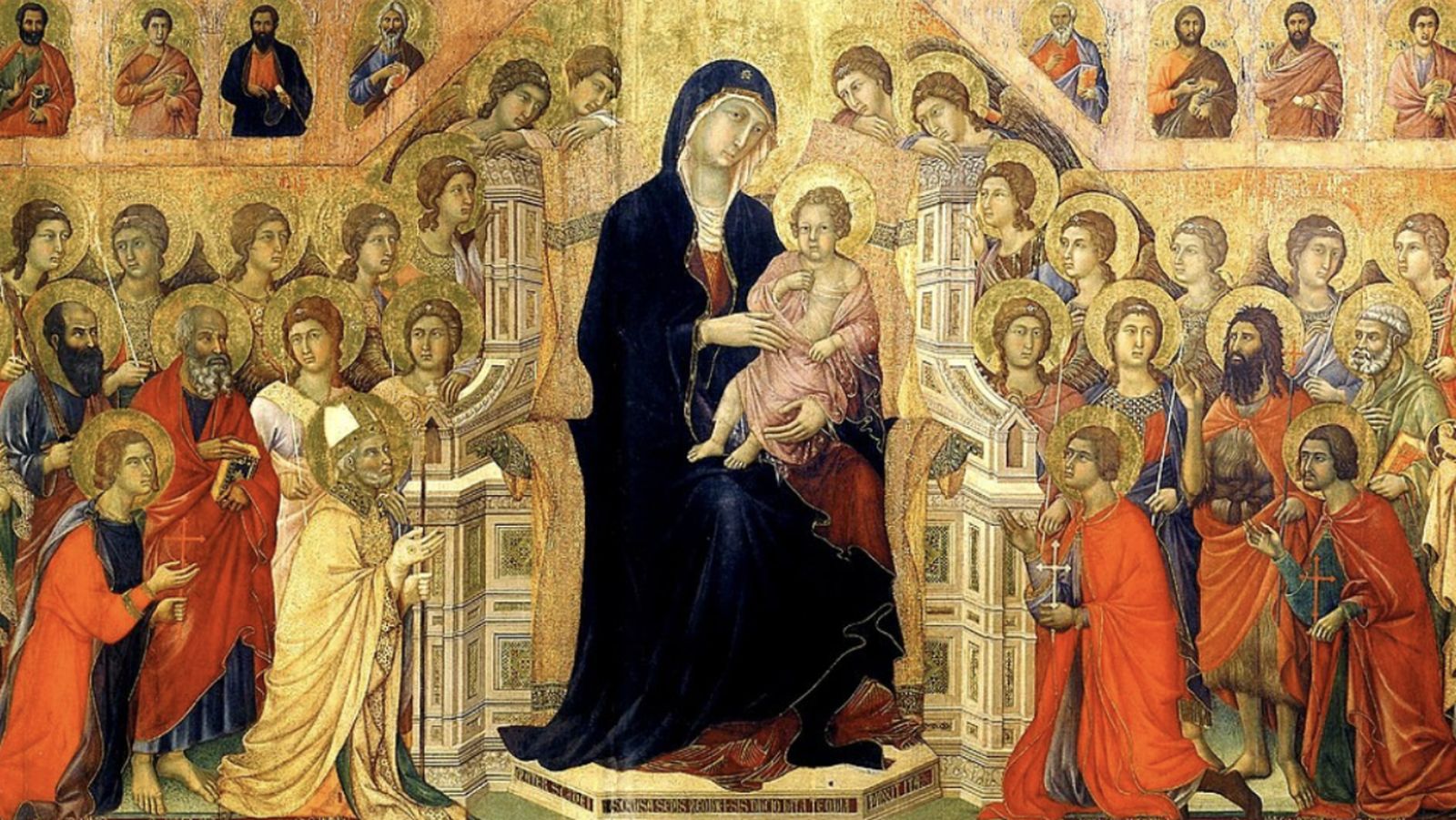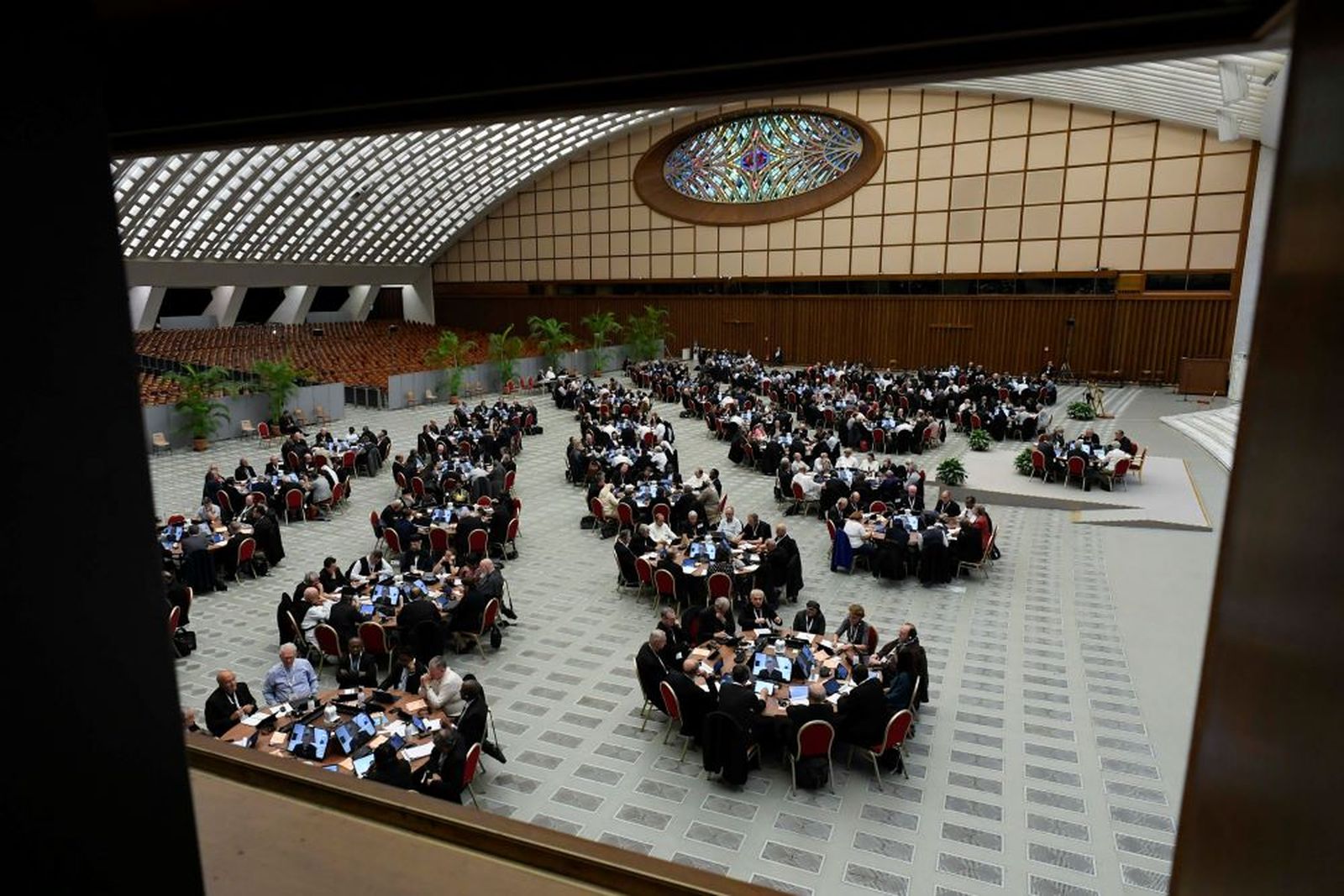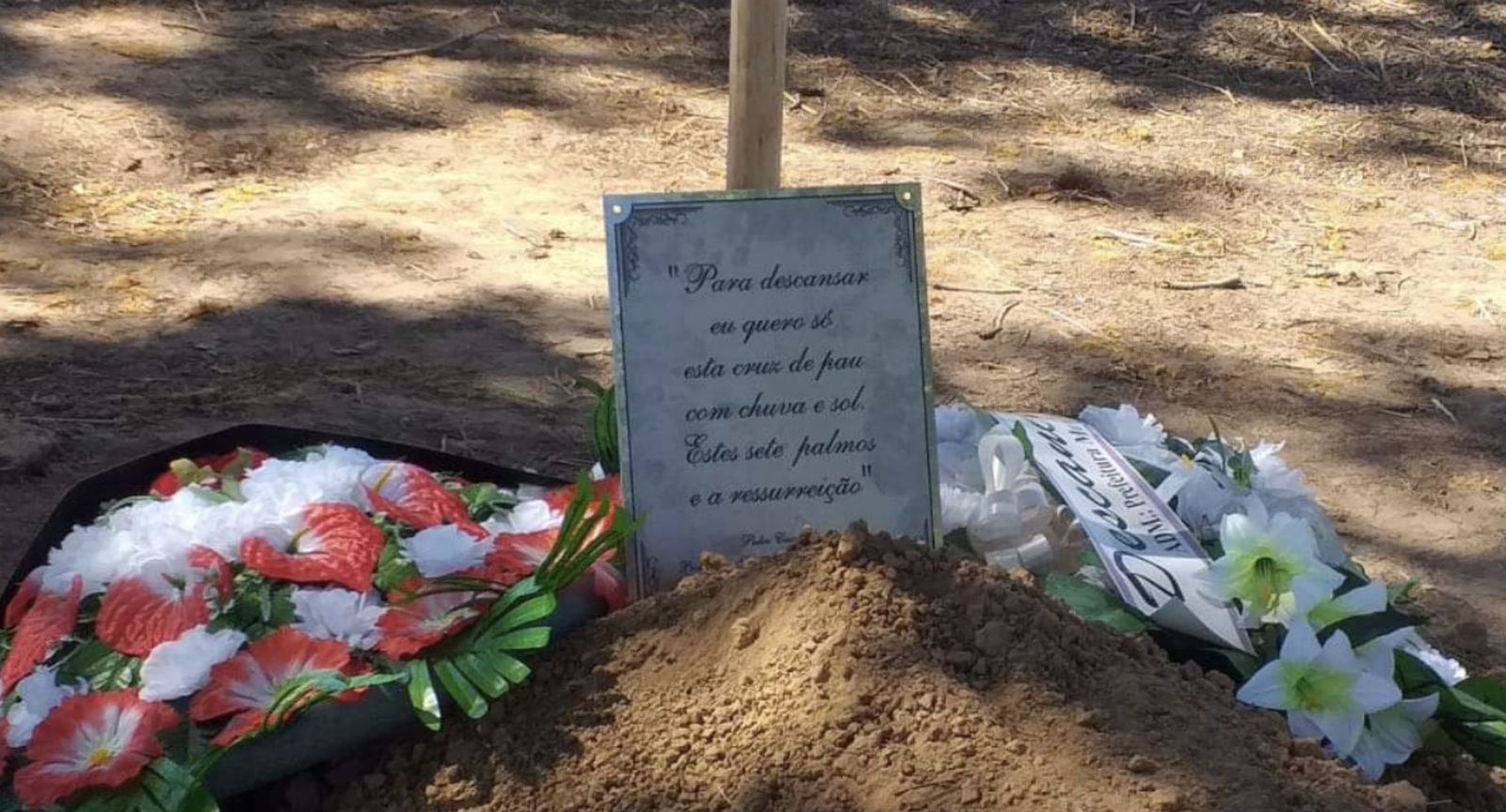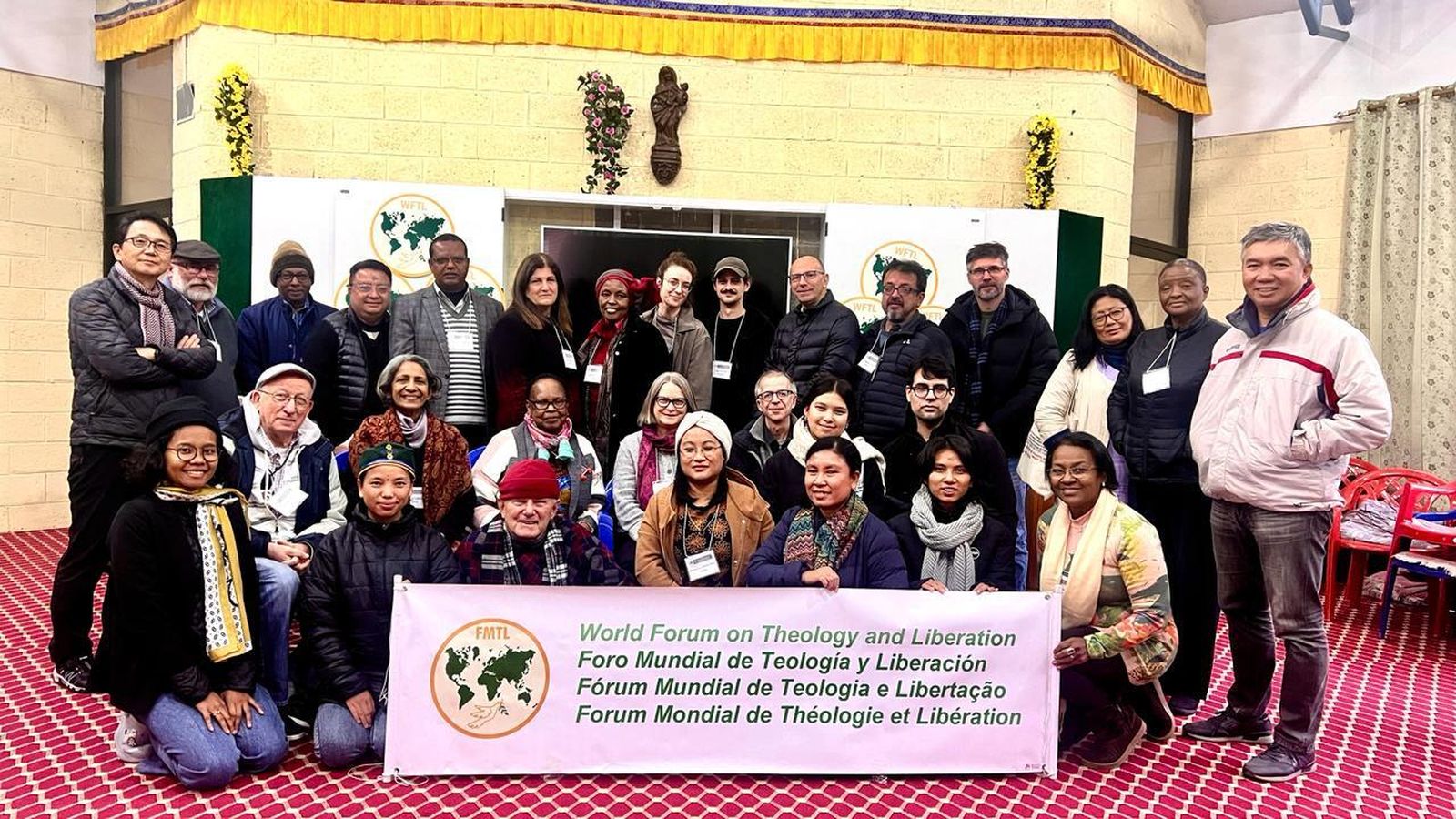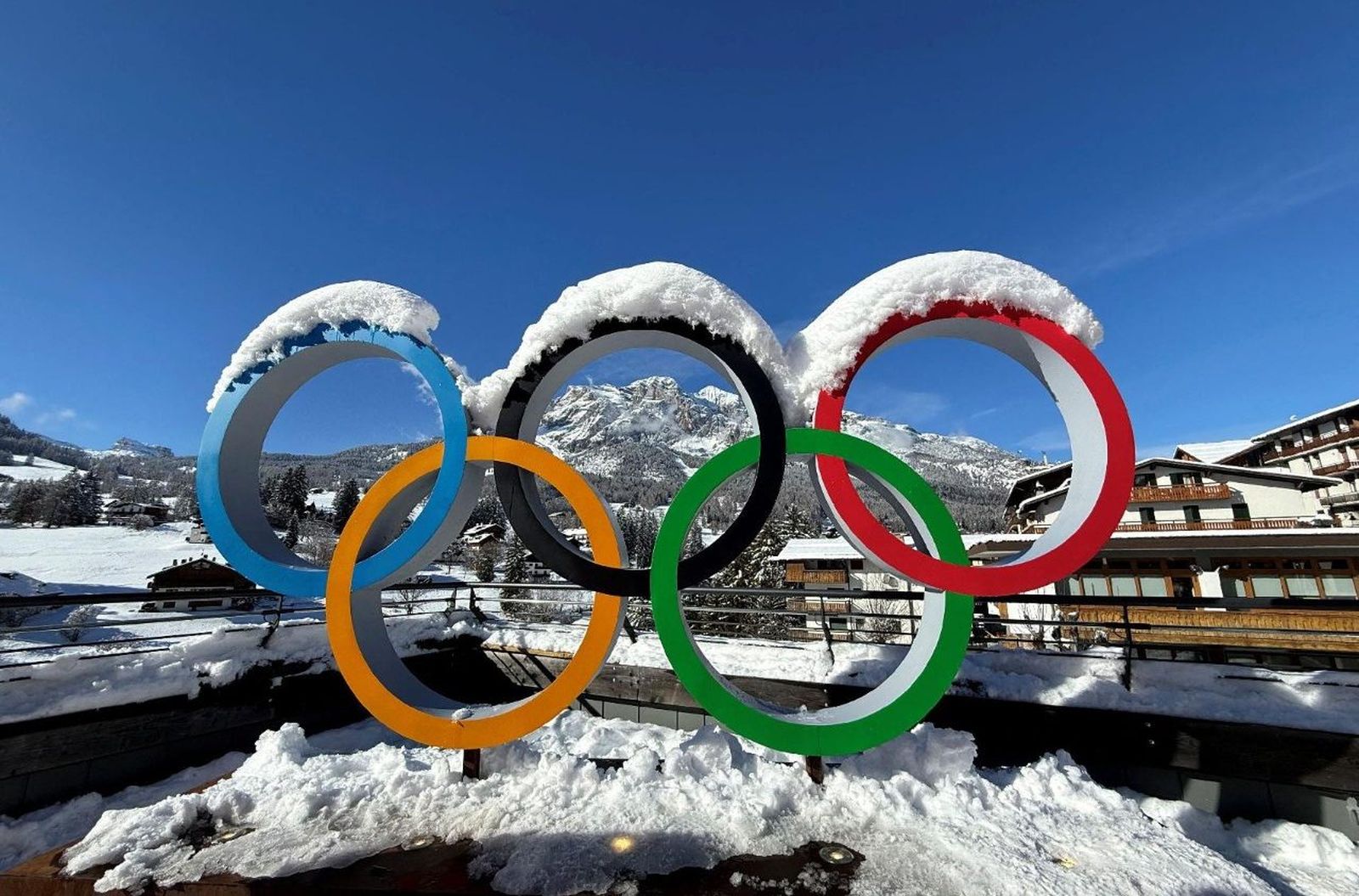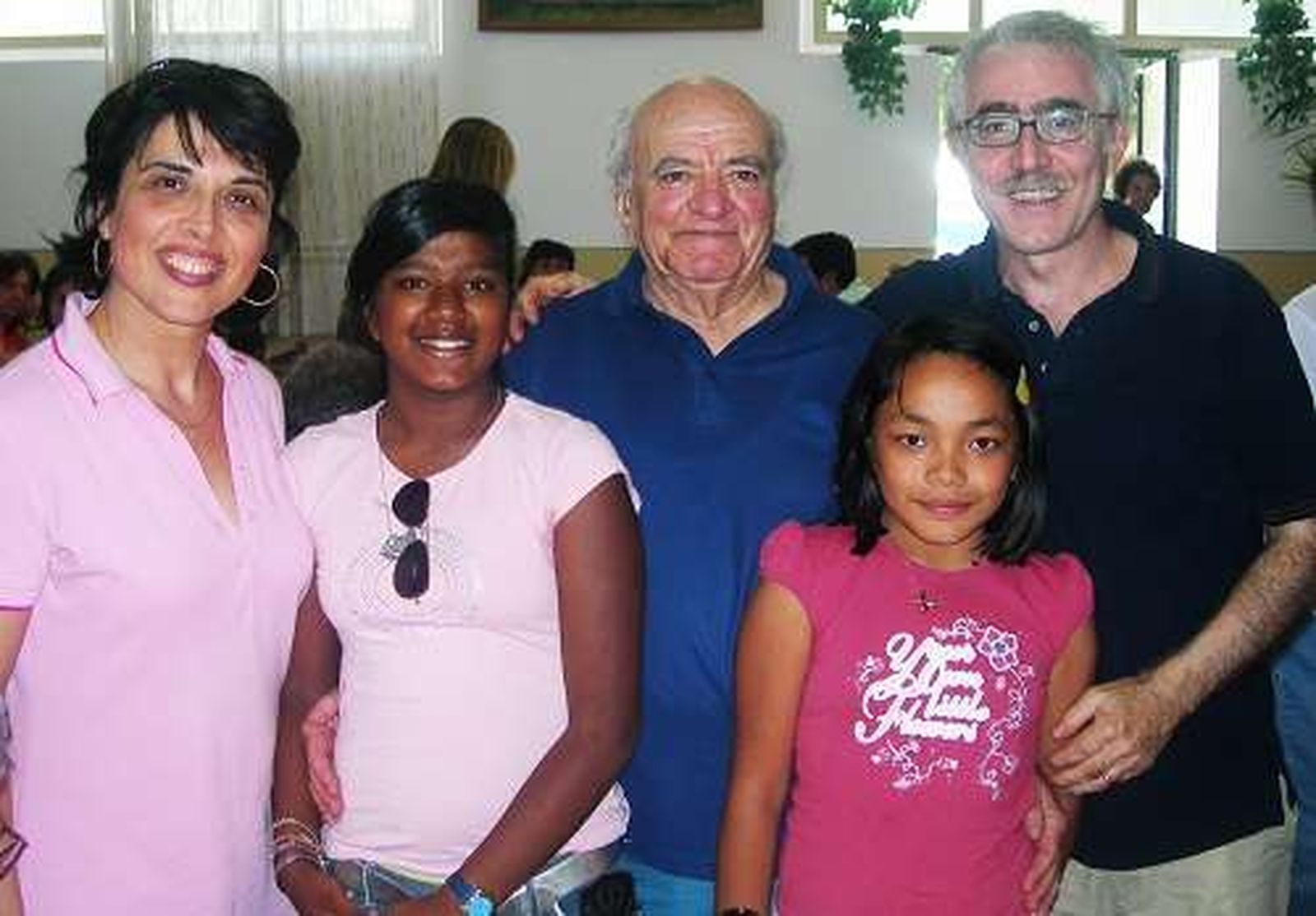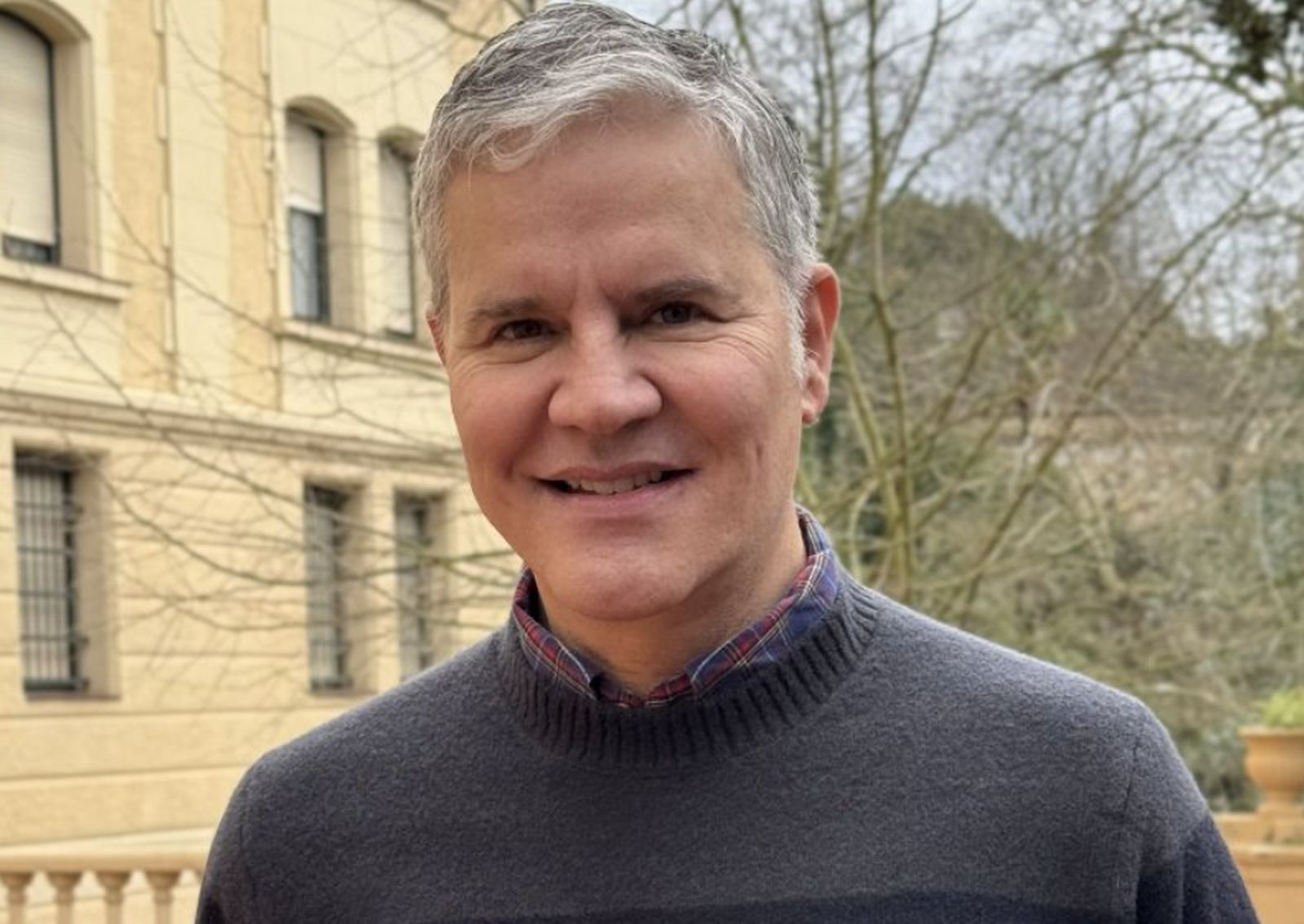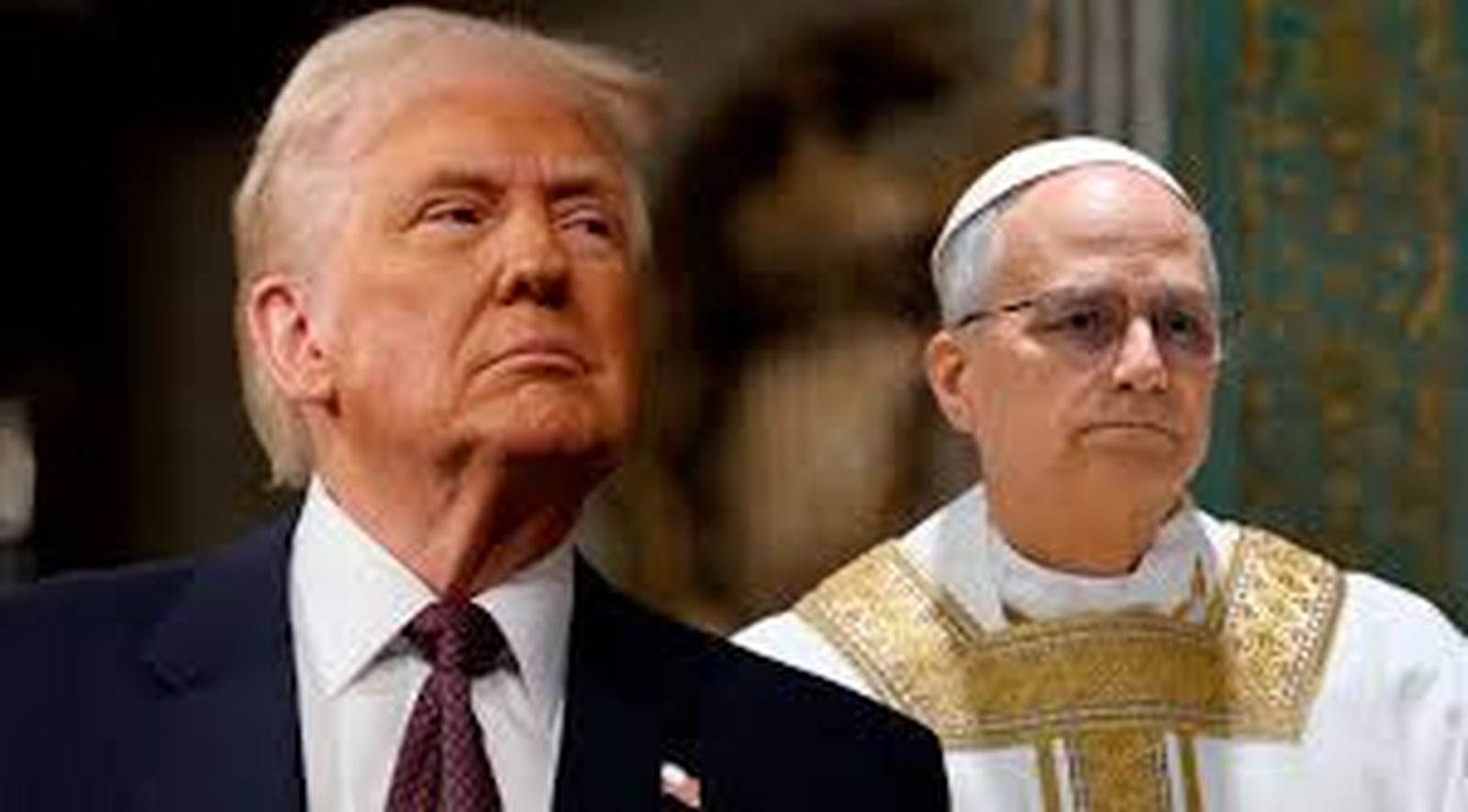Retomar el Sínodo, dentro y fuera de la caja
"Es mucho lo que nos jugamos en estos meses"
¿Qué es esto? ¿Qué está pasando? ¿Una rebelión de los sinodalistas, ellos y ellas? Parecería que lo primero sería aceptar las reglas del juego, que vienen de arriba... Pues no: algo de rebelión se está dando, sin ruido, sin decirlo, al ignorar positivamente aquellas directrices restrictivas venidas de arriba. «Los cambios han venido siempre de abajo, es nuestra hora», hemos podido leer a alguna «madre sinodal»
Es mucho lo que nos jugamos en estos meses. Quizá es demasiado, incluso inalcanzable. Pero si no salimos aprobados de la problemática coyuntura histórica actual, quizá dentro de no mucho Europa pase a ser, como lo es hace tiempo el Norte de África, una región continental que, siglos ha, también fue cristiana
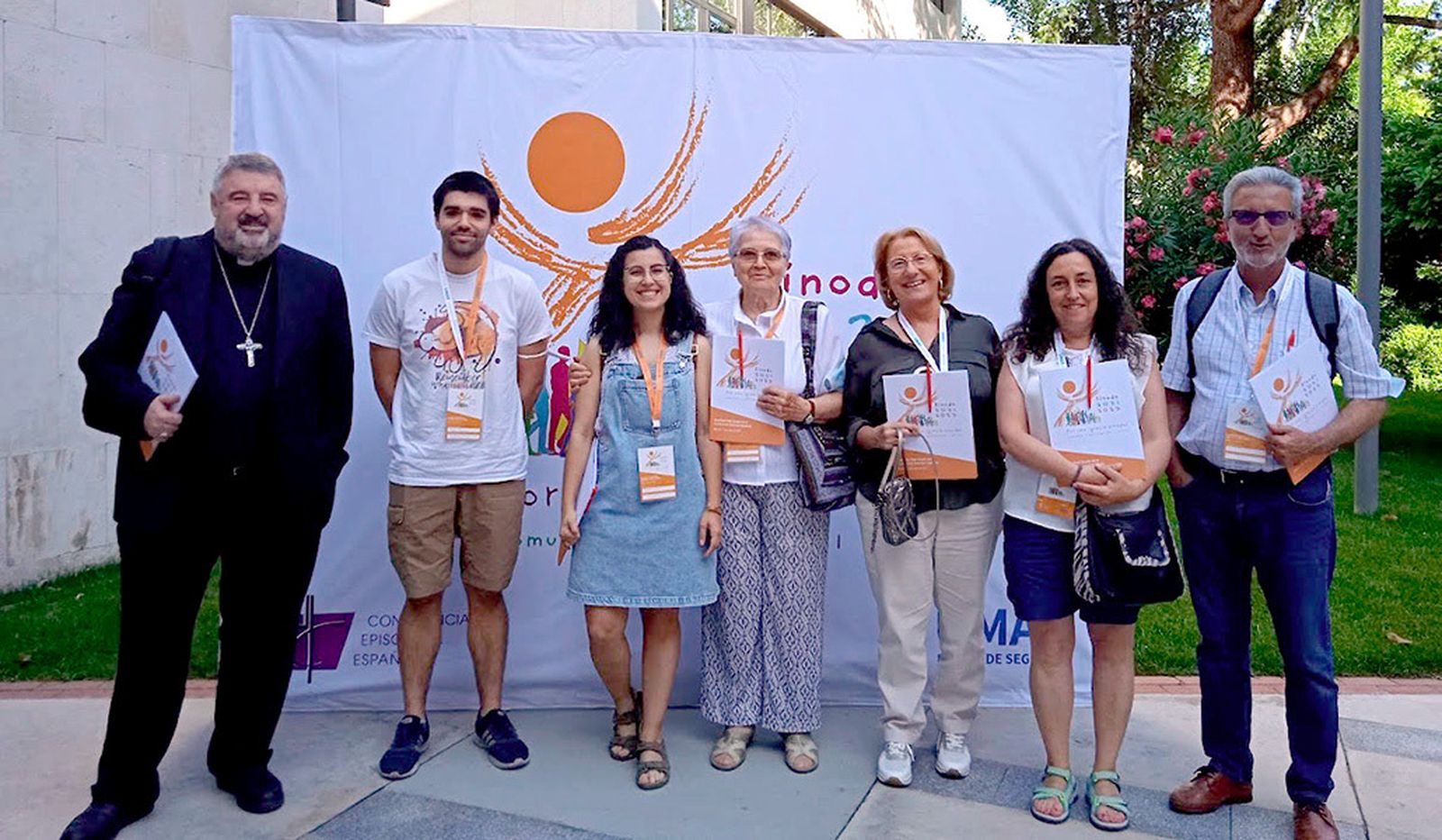
Momento complejo el que vive la Iglesia Católica en el mundo, en estado de Sínodo, con tantas muestras de ánimo como desánimo. En nuestro anterior post prometimos acompañar este bienintencionado proceso de renovación sinodal. El día siguiente nos sorprendió el documento emitido por la Secretaría General del Sínodo, marcando la «hoja de ruta» hacia el Sínodo de octubre de 2024.
Su contenido no podía ser más restrictivo y negativo. Como para desanimar al más entusiasta de entre quienes insistían en confiar en esta iniciativa eclesial. Pareció que estaba todo acabado. Y muchas personas nos animaron diciendo que no era para decepcionarse, porque «ya se sabía que» la institución no desea una participación adulta, responsable, crítica... sino simplemente aparentar que avanza y se moderniza, entre tanto clamor por el proverbial atraso de la Iglesia.
No voy a reproducir ni a comentar el contenido de aquel documento de la Secretaría del Sínodo, por varias razones. Verán.
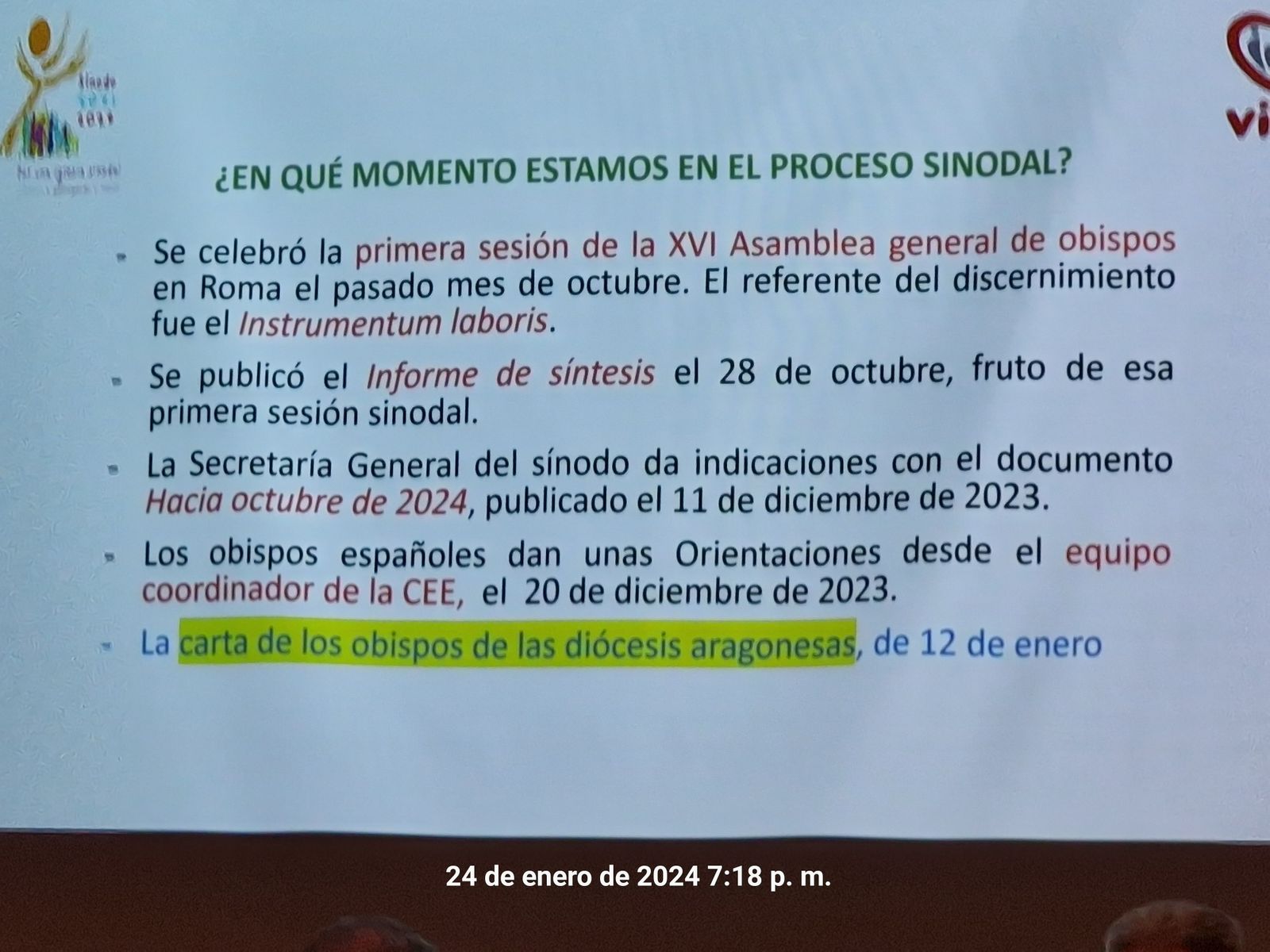
En primer lugar porque nadie lo cita ni lo comenta. Como si no hubiera sido emitido o publicado. No existe. No hace falta siquiera contradecirlo: simplemente se lo desconoce. Parece un documento que es «pastoralmente incorrecto» citar; alguna persona «sinodal» se irritó en público y perdió los papeles con simplemente escuchar su mención, para continuar animando a su auditorio, pero ocultando la existencia y el contenido del documento.
En segundo lugar, porque todas las voces siguen ignorándolo positivamente, y hablando con total libertad, en una línea contraria al documento, como si aquellas restrictivas directrices emanadas de la Secretaría no existieran. Con los días, Conferencias Episcopales nacionales, Diócesis locales, grupos y personas individuales animan a participar, e invitan a escoger con toda libertad los temas que quieran presentar a la consideración y decisión de esta última fase del Sínodo, la fase final y decisoria.
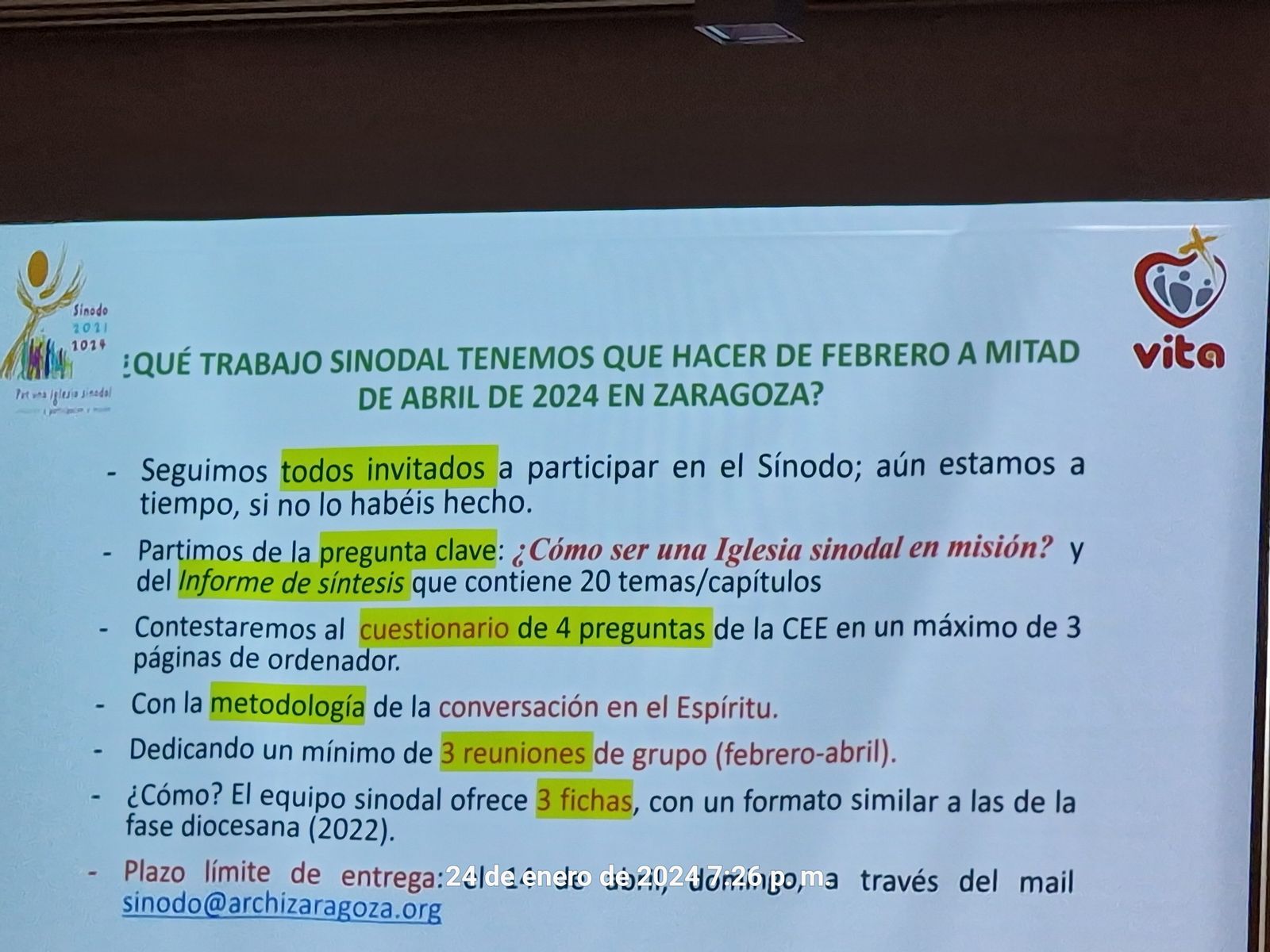
¿Qué es esto? ¿Qué está pasando? ¿Una rebelión de los sinodalistas, ellos y ellas? Parecería que lo primero sería aceptar las reglas del juego, que vienen de arriba... Pues no: algo de rebelión se está dando, sin ruido, sin decirlo, al ignorar positivamente aquellas directrices restrictivas venidas de arriba. «Los cambios han venido siempre de abajo, es nuestra hora», hemos podido leer a alguna «madre sinodal».
Después de un momento (largo) de desconcierto en estas semanas pasadas, me parece ver que tienen razón los rebeldes, y no porque sean tantos, sino porque, en una institución tan concreta y especial como la Iglesia Católica, sólo una participación muy cualificada de las bases puede presionar para que en las alturas jerárquicas se admitan los graves y numerosos cambios que se necesitan. Nuestro añorado profeta José Comblin decía que, por su peculiar historia de obediencia y sumisión de las masas, en nuestra Iglesia Católica sólo han podido salir adelante -hasta ahora- las reformas encabezadas por la autoridad eclesiástica. De ahí la importancia de la posición de liderazgo que tome o que le sea reconocida al papa Francisco.
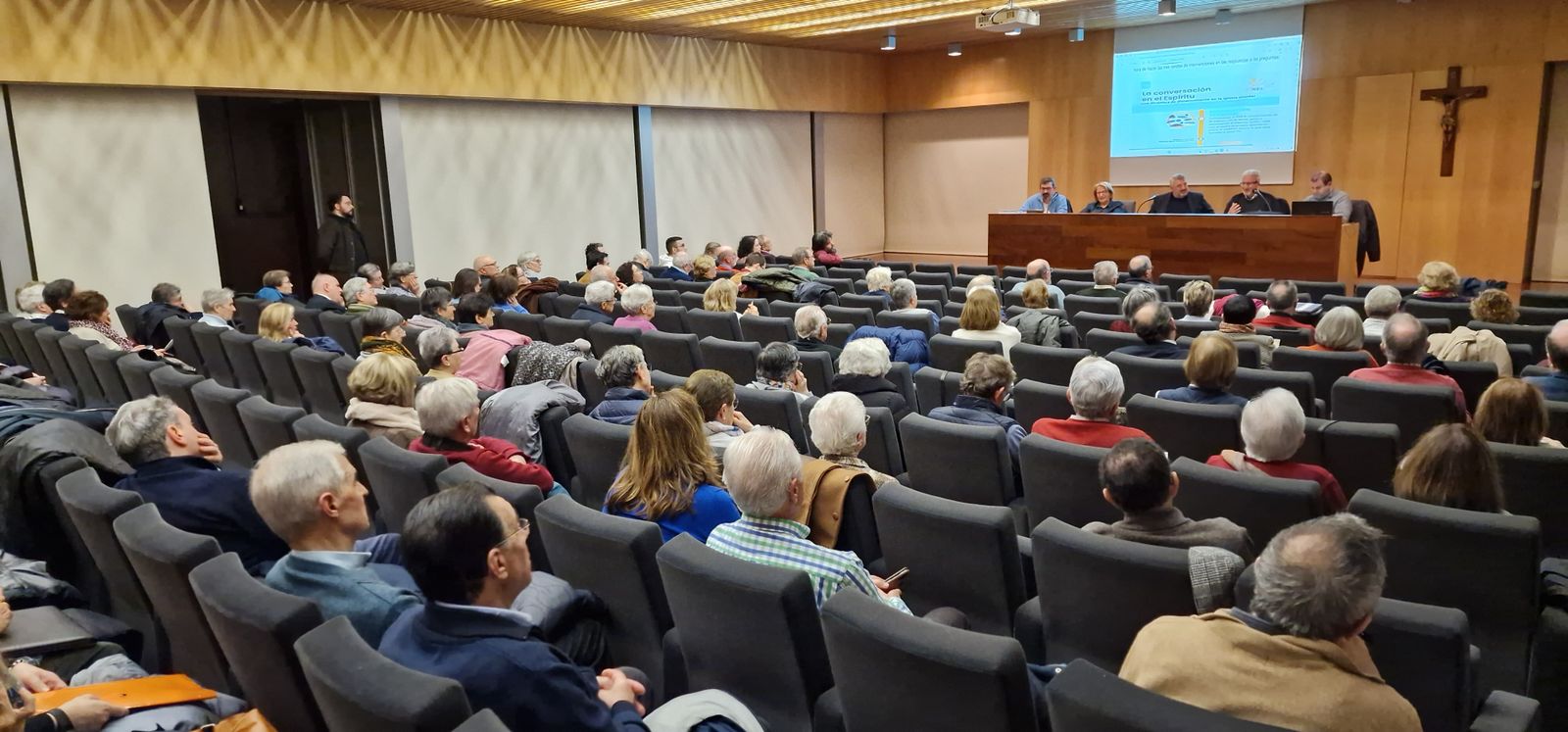
Interesante coyuntura eclesial la de este momento. Y de importancia capital -como decíamos en el último post- la oportunidad de diálogo, discernimiento y cambios que se presentan en este momento final sinodal (quizá también final de pontificado). No será fácil, ni posible, convenir en que necesitamos los cambios puestos sobre la mesa, pero si no se aprovecha esta oportunidad, el fracaso esta vez puede ser fatídico para el futuro de la Iglesia, ante esta primera generación joven que, alejada de ella, todavía espera -entre desconfiada e incrédula- un signo mayor para volver a creer en la Iglesia. ¿Será ésta capaz?
Momento complejo, he comenzado diciendo, y momento decisivo, quizá «último» para esta generación. Es mucho lo que nos jugamos en estos meses. Quizá es demasiado, incluso inalcanzable. Pero si no salimos aprobados de la problemática coyuntura histórica actual, quizá dentro de no mucho Europa pase a ser, como lo es hace tiempo el Norte de África, una región continental que, siglos ha, también fue cristiana.
Contact and comments: blog@servicioskoinonia.org
Link to all blog posts at once: tinyurl.com/Vigil-BlogRD
English
It is a complex time for the Catholic Church in the world, in a state of Synod, with as many signs of encouragement as discouragement. In our previous post we promised to accompany this well-intentioned process of synodal renewal. The following day we were surprised by the document issued by the General Secretariat of the Synod, marking the "road map" towards the Synod of October 2024. Its content could not have been more restrictive and negative. It was enough to discourage even the most enthusiastic among those who insisted on trusting in this ecclesial initiative. It seemed that it was all over. And many people encouraged us by saying that it was not to be disappointed, because "it was already known that" the institution does not want an adult, responsible, critical participation... but simply to appear to be moving forward and modernizing, amidst so much clamor for the proverbial backwardness of the Church.
I am not going to reproduce or comment on the content of that document of the Synod Secretariat, for several reasons. You will see.
In the first place because no one quotes or comments on it. As if it had not been issued or published. It does not exist. There is no need to contradict it: it is simply unknown. It seems to be a document that is "pastorally incorrect" to quote; some "synodal" person got irritated in public and lost his temper just hearing its mention, to continue encouraging his audience, but hiding the existence and content of the document.
Secondly, because all the voices continue to positively ignore it, and speak freely, in a line contrary to the document, as if those restrictive directives emanating from the Secretariat did not exist. As the days go by, national Episcopal Conferences, local Dioceses, groups and individuals are encouraging participation, and inviting people to choose freely the topics they wish to present for consideration and decision in this last phase of the Synod, the final and decisive phase.
What is this? What is going on? A rebellion of the synodalists? It would seem that the first thing would be to accept the rules of the game, which come from above? Well, no: something of a rebellion is taking place, without noise, without saying it, by positively ignoring those restrictive directives coming from above. "The changes have always come from below, it is our time", we have been able to read to some "mother synodal".
After a (long) moment of bewilderment in these past weeks, it seems to me that the rebels are right, and not because there are so many, but because, in an institution as concrete and special as the Catholic Church, only a very massive qualified participation of the grassroots can put pressure on the hierarchical heights to admit the serious and numerous changes that are needed. Our long-missed prophet Joseph Comblin used to say that, because of its peculiar history of obedience and submission of the masses, in our Catholic Church only reforms led by the ecclesiastical authority have been able to succeed -until now-. Hence the importance of the leadership position that Pope Francis will take or that will be recognized.
This is an interesting ecclesial situation at this moment. And of capital importance - as we said in the last post - the opportunity for dialogue, discernment and changes that are presented in this final synodal moment (perhaps also the end of the pontificate). It will not be easy, nor will it be possible, to agree that we need the changes put on the table, but if we do not take advantage of this opportunity, failure this time could be fatal for the future of the Church, in the face of this first young generation that, distanced from her, is still waiting for a greater sign to return to believe in the Church. Will she be capable of it?
It is a complex moment, I began by saying, and a decisive moment, perhaps the "last" for this generation. Much is at stake in these months. Perhaps it is too much, even unattainable. But if we do not emerge approved from the current problematic historical conjuncture, perhaps within a short time Europe will become, as North Africa has been for some time, a continental region that, centuries ago, was also Christian.
Contact and comments: blog@servicioskoinonia.org
Link to all blog posts at once: tinyurl.com/Vigil-BlogRD
